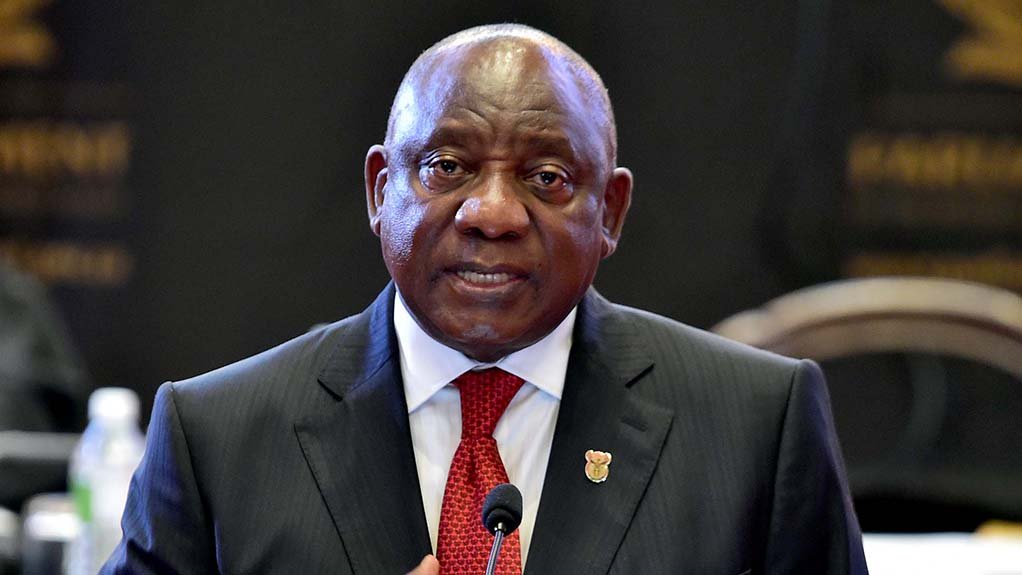In his weekly letter to the nation on Monday President Cyril Ramaphosa said that government is working to close the capacity gaps that led to the unpreparedness of the country’s law enforcement in dealing with the July 2021 unrest.
Ramaphosa admitted that there are serious challenges facing policing in South Africa, and gave his assurance that government is working to overcome them.
Among the interventions are the re-organising and reprioritising of resources, improving capacity and strengthening law enforcement capacity across the board, and using the Expert Panel report on the unrest as a basis for organisational reform.
Ramaphosa acknowledged the growing public frustration and anger at the levels of crime in the country.
Last month’s robbery and gang rape of eight young women in Krugersdorp caused nationwide outrage and led to calls for decisive action against armed illegal mining gangs operating in the area.
“Like all government departments, the South African Police Service (Saps) is feeling the effects of the country’s fiscal crisis, several years of understaffing and State capture. Police members also work in a dangerous environment where they often have to face violence, injury or death,” Ramaphosa said.
He pointed out that crime in South Africa cannot be eradicated without a strong, capable, professional police force.
The capacity of the Saps is one of the issues flagged in the Expert Panel report into the July 2021 unrest, which, the President said, government is taking steps to address.
“Having restored much-needed stability to the leadership of the Saps, our focus now is on closing capacity gaps that led to our law enforcement authorities being found unprepared to deal with the events of last July,” Ramaphosa said.
He particularly noted that understaffing and lack of adequate training has severely impacted community and Public Order Policing.
Government has allocated funding for the recruitment of 12 000 new police trainees, and the first cohort is undergoing basic training. The Saps Public Order Policing Units will receive an additional 4 000 members and arrangements are being made for appropriate training for members.
“Drawing on the lessons of last July’s unrest, we are working to improve cooperation between law enforcement agencies and the private security industry in the fight against crime,” Ramaphosa said.
He explained that close coordination with all stakeholders, including business, is needed so that resources and crime intelligence are shared to improve public safety and deal with crimes that disrupt economic activity.
Through its national intervention units, the Saps has also been making progress in combating organised crime, including drug syndicates, gangs and illegal mining.
The Saps is establishing a task team to tackle illegal mining, alongside other task teams that will deal with construction site extortion, copper and cable theft, and theft and vandalism of economic infrastructure.
HARD AT WORK
Ramaphosa said besides the successes of effective policing in tackling economic crimes, the hard work of the Saps in dealing with broader crime often goes unacknowledged.
He said in the last financial year the Saps Crime Investigations secured 206 life sentences against 209 accused, of which 154 were for murder and rape. The Saps Family Violence, Child Protection and Sexual Offences Units secured 356 life sentences against 266 accused. Suspect tracing operations resulted in over 13 000 arrests.
“Given the high levels of crime in our society, there is clearly much more that must be done. But these figures do show that many criminals are being arrested and successfully prosecuted. They are not being allowed to get away with murder,” he stressed.
The Hawks have started work with the NPA Investigating Directorate on cases emanating from the State capture commission, he added.
EMAIL THIS ARTICLE SAVE THIS ARTICLE ARTICLE ENQUIRY
To subscribe email subscriptions@creamermedia.co.za or click here
To advertise email advertising@creamermedia.co.za or click here











